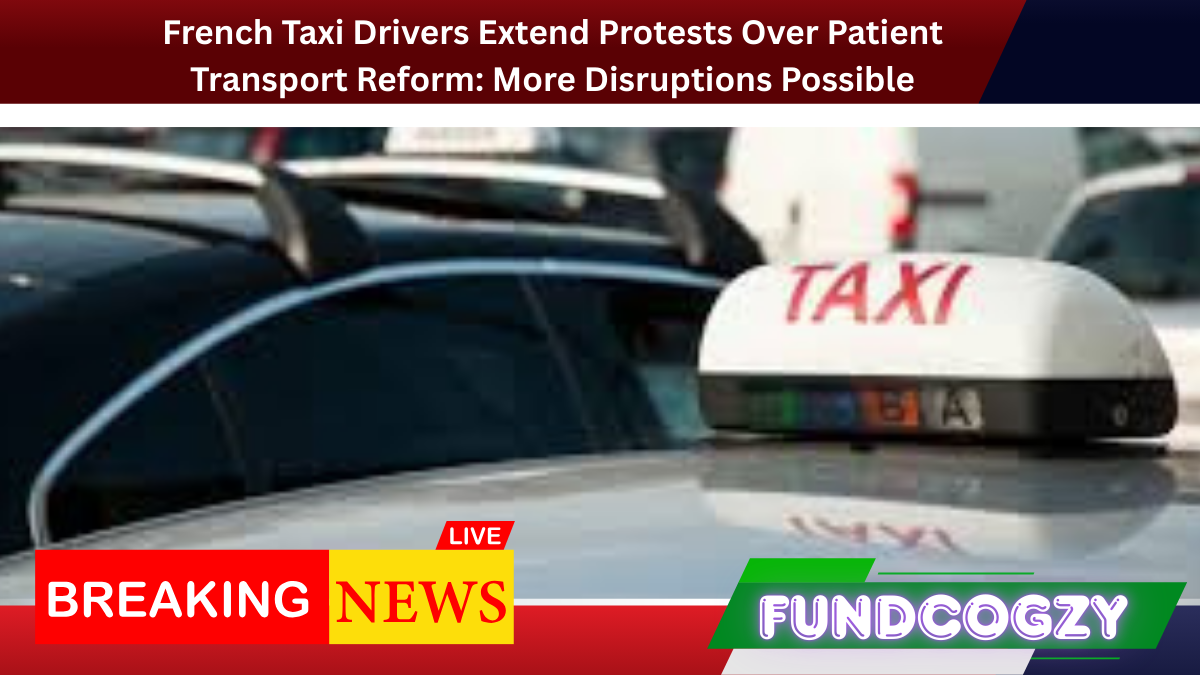French taxi drivers are showing no signs of backing down as tensions continue to rise over the government’s planned reform of medical transport tariffs. After a week of nationwide protests, drivers have announced they will extend their mobilization through Monday and have not ruled out further actions ahead of the government’s scheduled review of the proposal on Tuesday.
The heart of the dispute lies in a new pricing model for patient transportation services, which taxi unions argue threatens their livelihoods. Despite a recent announcement by High Commissioner François Bayrou that the reform will be reexamined, taxi federations are keeping up the pressure—calling for real, concrete action rather than political promises.
Taxis Remain on Alert as Trust Wavers
Following a meeting between government officials and representatives of the taxi industry on Saturday evening, Bayrou confirmed that the reform plan will be reviewed beginning Tuesday. He also acknowledged two major concerns raised by the drivers: the proposed unified tariff for patient transport and the regulation of ride-hailing platforms (VTCs), which taxis say operate under unfair conditions.
But for many drivers, words are not enough.
“While we await concrete measures, the taxi sector has decided to continue its mobilization,” the inter-union group representing taxi drivers stated in a press release late Saturday night. “Determined and unified, the profession is maintaining its protest zones and planning further actions, including slow-rolling traffic operations.”
By Saturday evening, a number of independent taxi drivers had already committed to continuing their demonstrations through Monday. Protesters gathered on Paris’ Boulevard Raspail, near the Ministry of Transport, where banners, parked taxis, and chants drew attention to their cause.
Dominique Buisson, of the National Federation of Taxis (FNDT), emphasized the cautious optimism among drivers: “Yes, there’s been a warm reception from the Prime Minister. Yes, some things may be reconsidered. But drivers are wary—they want to see real follow-through before backing off.”
What’s at Stake: A New System and Growing Costs
At the core of the government’s reform is an attempt to rein in skyrocketing healthcare transport costs. In 2024 alone, France spent a staggering €6.74 billion on medical transport—of which €3.07 billion went to contracted taxi services, a 45% increase since 2019.
The new payment structure, set to take effect on October 1, is designed to curb inefficiencies like empty return trips and extended waiting periods. Under the proposed model, the national health insurance system would pay a fixed base fare of €13, followed by a per-kilometer charge. Supporters argue this change could make the system more cost-effective and transparent.
However, taxi drivers fear that the new tariff system will significantly reduce their income, especially for rural or long-distance trips where additional costs are often necessary. Many also argue that the new structure ignores the realities of their work—such as the time spent waiting at hospitals or assisting vulnerable patients—which can’t always be measured in kilometers alone.
A Battle on Two Fronts: VTC Platforms in the Crosshairs
Beyond the tariff changes, taxi drivers are also demanding stricter enforcement of regulations on ride-hailing platforms like Uber and Bolt. These services have long been accused by the taxi industry of skirting rules and undercutting prices by operating outside of the stringent requirements imposed on traditional taxi drivers.
In his remarks, François Bayrou acknowledged this grievance and promised a renewed focus on platform regulation. Still, the industry remains skeptical. Without stronger oversight and clearer guidelines, drivers worry that reforms will only further tilt the playing field in favor of VTC operators.
No Compromise on Reform Timeline, Government Says
While Bayrou promised a review of the reform’s implementation, he made it clear that the October 1 rollout date and the government’s savings target would remain intact. This has added to drivers’ frustration, as many see the timeline as too rushed and the consultation process too limited.
The government insists that reforms are essential to keeping healthcare transport sustainable. With an aging population and increasing demand for patient mobility, officials argue that delaying changes could place further strain on public finances.
But drivers see the move as a short-term fix that will leave them—and their patients—worse off in the long run. “We are not against modernization,” said one protesting driver. “But you can’t modernize a system by making the people who provide the service pay the price.”
The Road Ahead
As Tuesday’s review looms, both sides appear locked in a tense standoff. Taxi unions have hinted at further actions, including road blockades and coordinated disruptions, if their demands are not addressed to their satisfaction.
“We’re not going away,” said one protester in Paris. “We’ve worked too hard to let this go without a fight.”
The government, meanwhile, is trying to strike a balance between fiscal responsibility and social dialogue. Whether that balance can be found before October—and without more public disruption—remains to be seen.
Conclusion
France’s taxi drivers are making it clear: reforms that impact their pay and working conditions won’t go unchallenged. As the country prepares to reexamine the patient transport reform this week, the industry is staying vigilant, and tensions are unlikely to subside quickly. For now, the streets—and the political pressure—remain occupied.

